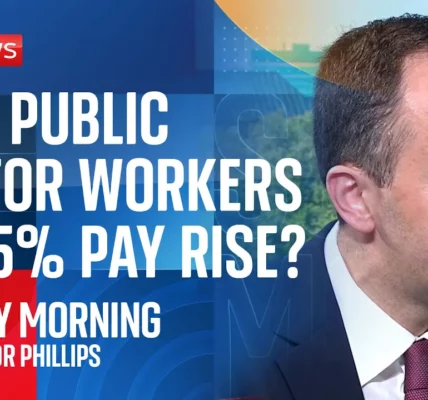Lady Starmer’s Fashion Controversy at London Fashion Week

The recent appearance of Lady Starmer at London Fashion Week has sparked a heated discussion regarding political appropriateness and fashion choices, especially in light of ongoing economic challenges faced by many citizens. This article delves into the intricacies of the situation and its broader implications.
Introduction
Lady Starmer’s choice of attire during her attendance at London Fashion Week, valued at an astounding £25,000, has ignited debates surrounding the intersection of politics and fashion. While some view her outfit as a mere showcase of British fashion, others criticize it as a sign of insensitivity amidst financial struggles experienced by many citizens. This article aims to explore the various facets of this controversy, including its implications for the Labour Party and the public perception of political figures.
The Fashion Statement
Lady Starmer’s outfit has been described as a significant representation of British fashion. However, the choice to wear a highly expensive garment has raised eyebrows, especially given the current economic climate. Let’s delve deeper into the context of this fashion statement.
Importance of British Fashion
The British fashion industry is a vital part of the economy, contributing significantly to exports. By showcasing British designers, Lady Starmer aimed to support this sector. However, the timing and context of her appearance have led to mixed reactions.
Borrowing vs. Owning Expensive Clothing
It’s common for public figures to borrow outfits for high-profile events. This practice is not unusual, but when paired with high-profile controversies, it can create a perception of disconnect from the everyday struggles of the public.
Political Backlash
The criticism directed towards Lady Starmer has been amplified by concurrent issues within the Labour Party and its leadership. Specifically, allegations regarding the party’s connection to financial impropriety further complicate the perception of its members.
Accusations of Insensitivity
Some Labour backbenchers have accused Lady Starmer of being insensitive to the struggles of the working class, particularly in light of her husband’s alleged financial misconduct. This perception can damage the party’s image as a champion of the people.
The Role of Media in Shaping Opinions
Media coverage plays a crucial role in shaping public perception. Critiques from outlets such as the Daily Mail have heightened scrutiny on Labour’s leadership, contrasting their actions against their proclaimed values. Key points include:
- Allegations of accepting substantial freebies, including luxury events.
- Concerns over policies affecting pensioners and working-class individuals.
- Public perception of politicians living lavishly while advocating for the needy.
Economic Context
The economic backdrop against which these discussions are taking place is critical. With rising costs of living and economic challenges, the Labour Party’s policies and actions are under intense scrutiny.
Pensioner Welfare
The mention of maintaining the triple lock for pensions is crucial in this debate. While the government asserts that pensioners will see improvements in their financial situations, public sentiment often diverges from political assurances.
Public Perception of Political Figures
Political figures are often judged by their ability to relate to the public. The juxtaposition of high fashion and economic hardship can create a dissonance that affects voter trust. Key considerations include:
- Public trust in political leaders.
- The importance of relatability in politics.
- How personal choices reflect broader political ideals.
International Implications
Recent discussions around the Labour Party have extended beyond local politics, touching upon international relations, particularly concerning migration policies and cooperation with other nations.
Migration Policies and International Cooperation
As the Prime Minister engages with European leaders, the dialogue surrounding migration and humanitarian efforts has gained prominence. The necessity of working with international partners to address complex migration issues is vital.
The Role of Italy and the EU
Italy’s approach to managing migration has raised questions about the ethical implications of such policies. The Labour Party’s position on these matters will be crucial in defining its stance as a party that genuinely represents the people’s interests.
Conclusion
Lady Starmer’s fashion choice has revealed deeper political and economic tensions within the Labour Party and the broader societal context. The reactions to her outfit underscore the importance of sensitivity and relatability in political representation. As the Labour Party navigates these complex issues, it must strive to align its actions with its declared values to regain public trust. For those following these developments, staying informed is vital; consider exploring our related articles on fashion’s impact on politics and the economic policies of the Labour Party.
“`




